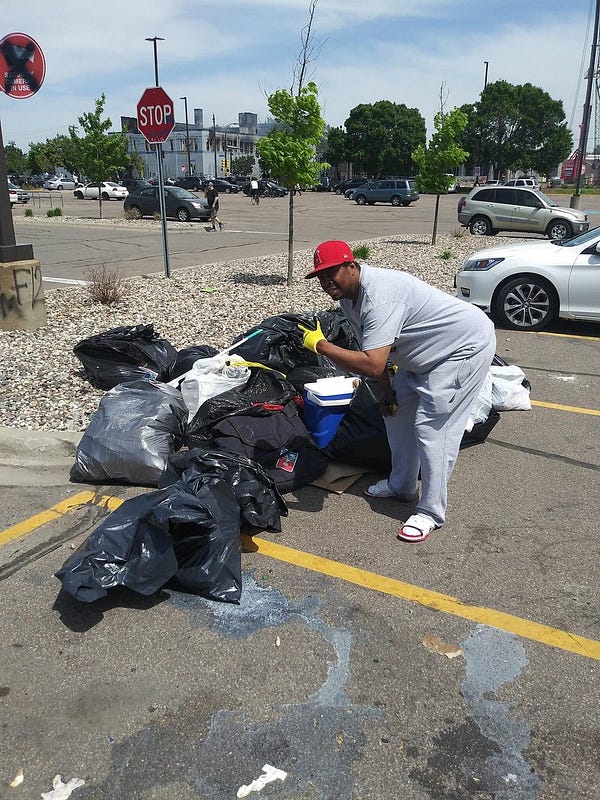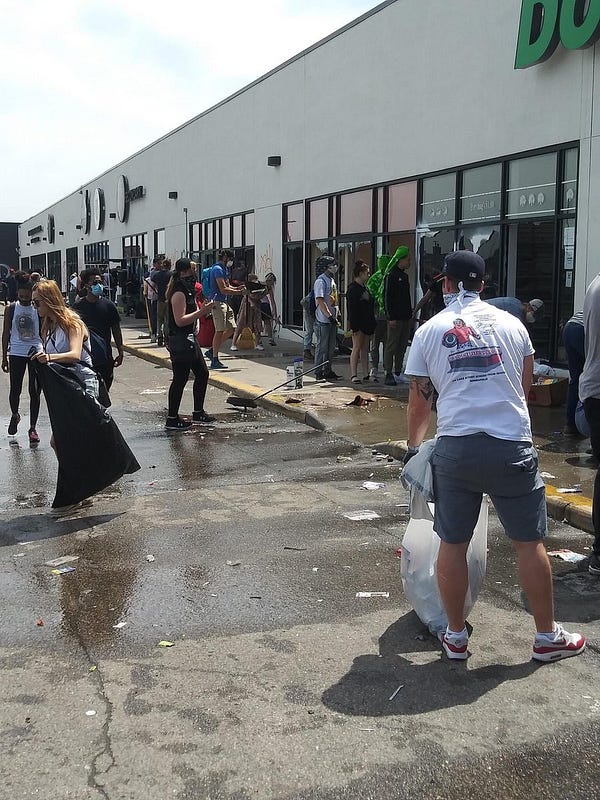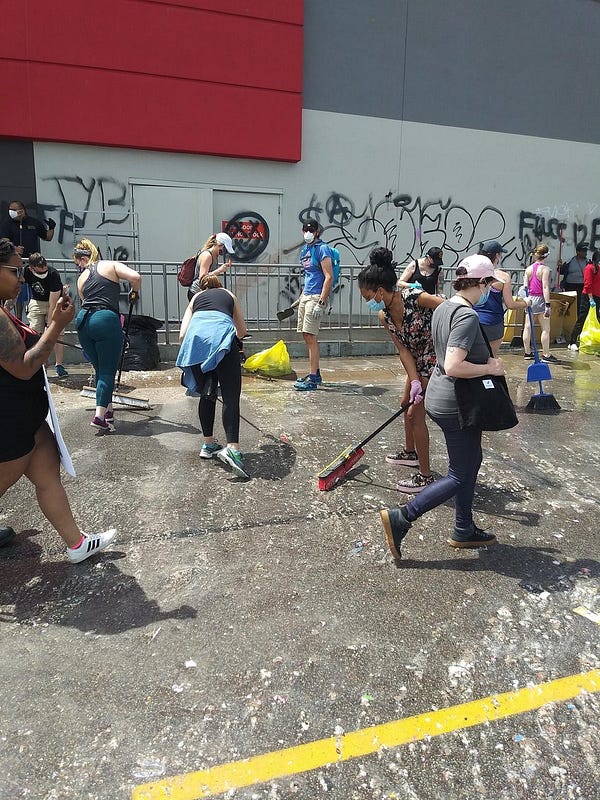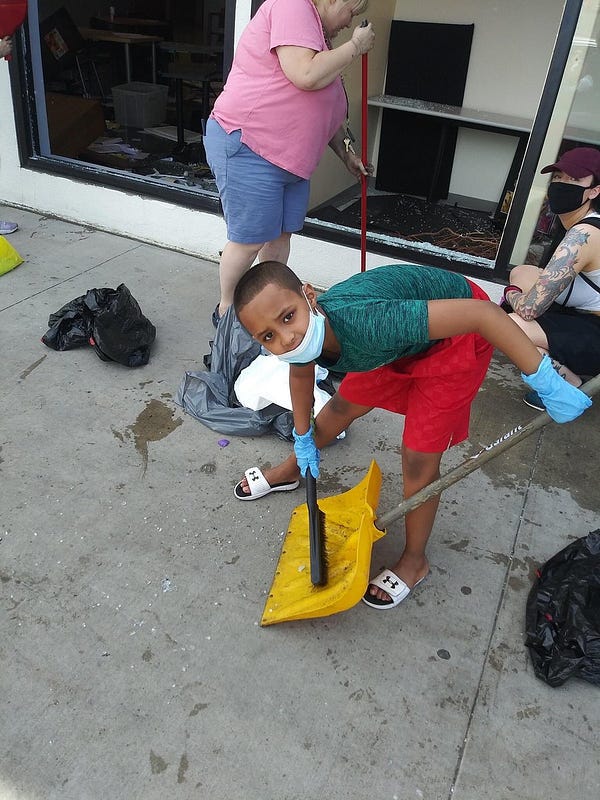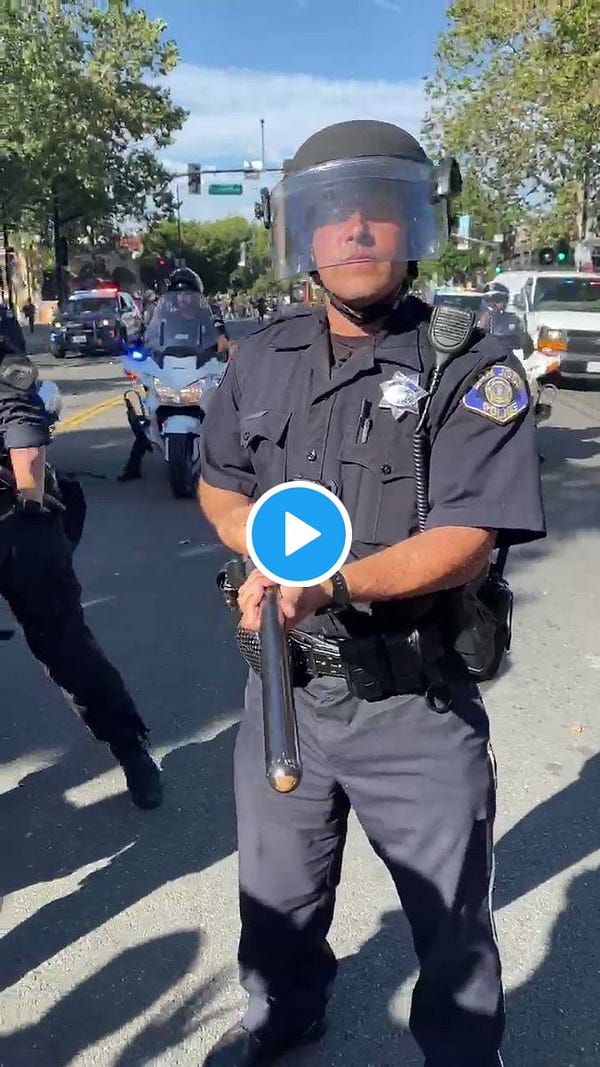Hi,
Welcome to Roll Call, a newsletter about the state of policy and technology in public safety, and the people shaping it. If you’d like to sign up, you can do so here. Or just read on…
I’ve asked a few colleagues and friends who’ve spent their careers in public safety how the unrest after the killing of George Floyd compares to their memory of that after the beating of Rodney King. All thought that by Saturday, that milestone had been passed.
“Ain't nothing changed but the year it is.”
- USC Professor Jody David Armour on effects of King riots/aftermath
There are excellent writers and activists with personal experiences that give them far more weight than I have regarding the politics of police reform. For fear of clouding that discussion, I won’t add my voice to that crowded arena. I have deep conviction, however, that the nature of public safety will be dramatically different in 2050 than now. Today’s note is about about a few of the important factors in play and second order effects if certain things come to pass. It’s not about my personal wants, but what I believe has a material chance of changing.
If we’re beyond Rodney King, there’s uncharted territory ahead. This seems to be a liminal moment. The video is as clear cut as it gets, with no public safety leaders extending the benefit of the doubt to the former officer. Black Lives Matter is a mature movement, founded in 2013 and forged in Sanford and New York, Ferguson and Baltimore. The macro tailwinds of C19 and quarantine, 40 million unemployed and UI benefits ending in July, the uncoupling of the stock market and the real economy, an election year and the beginning of warm weather are all combining to produce a moment with massive potential energy. The setting for this incident is also unique. The Minneapolis Mayor and Hennepin County DA are Democrats, and the Chief of Police is a well-respected, reform-minded professional. Only one City Coucilmember isn’t a Democrat; he’s a Green. The voting booth isn’t an obvious place for neighbors to redirect their anger.
This time, the anger is aimed squarely at the institution of law enforcement. For the police as we know it today to survive, the institution will require real leadership. Realer than we’ve ever seen. The moment demands leaders who listen harder than they’ve ever listened, communicate more clearly than they’ve ever communicated, and take decisive actions with a level of transparency that we’ve never seen before.
If people like Officer Patrick Skinner, Houston Police Chief Art Acevado, Atlanta Police Chief Erika Shields, Camden County Police Chief Joe Wysocki, and other operational agency heads don’t take this challenge head on - leading their departments and bringing their communities with them - then dramatic change will be imposed on them. If the institution is to survive, chiefs and sheriffs need to be the ones to do it. Legislative actors are usually too far disconnected from operational requirements, but it won’t stop them from making an attempt if public safety leaders don’t act first. This includes the entire ecosystem - Roll Call spends a lot of time on tech companies: if the likes of Motorola, Tyler, CentralSquare, Axon, and others don’t change gears and become proactive in policy issues, the change will be imposed on them too. Marching with protestors isn’t enough, for chiefs or CEOs. Operations are going to adjust or be run over.
The choice seems to be self-amputation or the death of law enforcement as it exists today. Drastic, short-term, self-inflicted pain or the decline of the whole institution.
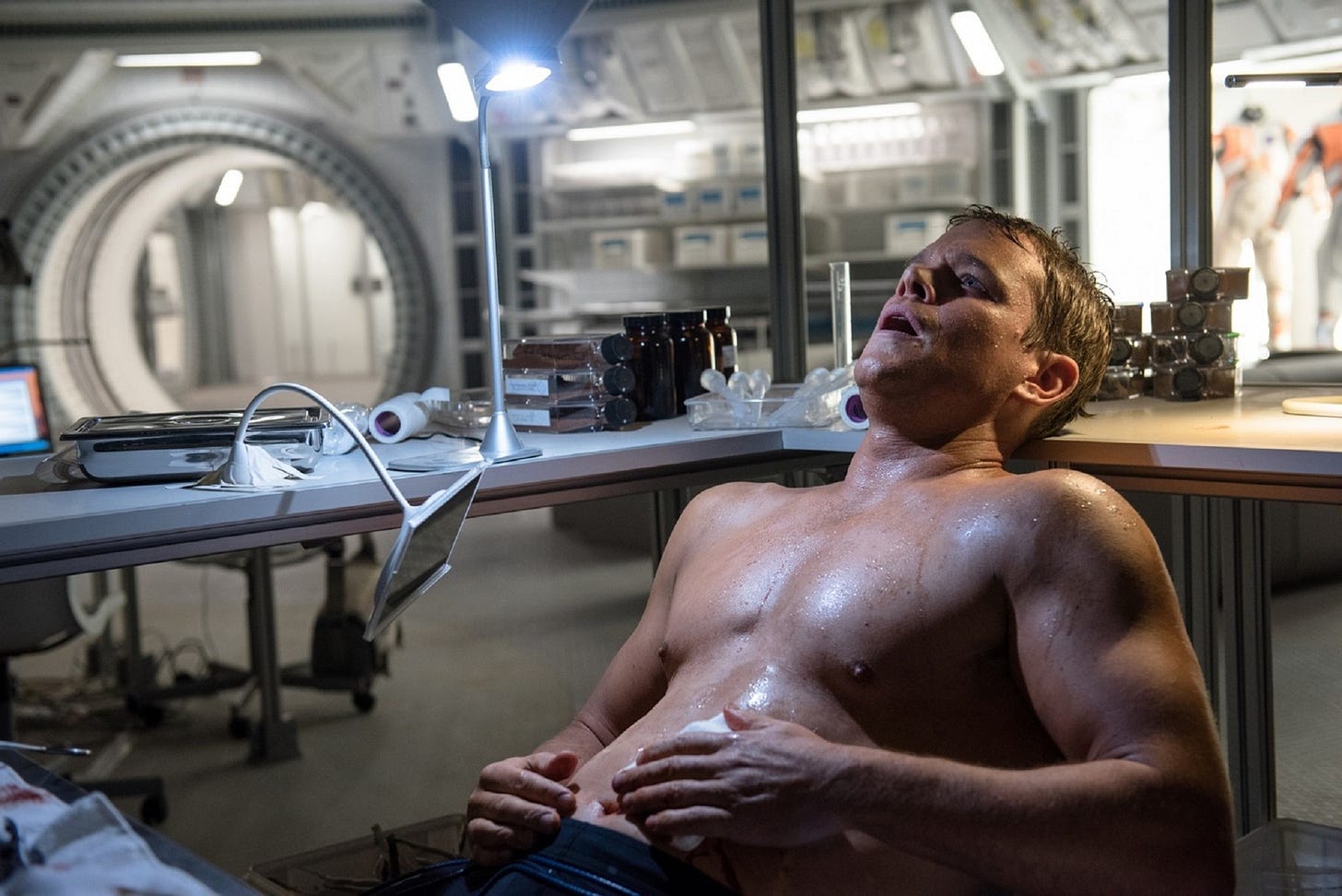
(Matt Damon as Mark Watney in The Martian, after performing surgery on himself)
What Could Happen
Three paths:
Complete Blowup of System - 10% chance, but increasing by the day
Fundamental Change, System Remains - 65% chance
Minor Reforms, System Remains - 25% chance
Today’s note exists because ‘Defund the Police’ as a policy choice has successfully made the jump from activist groups and Democratic Socialist tweets to traditional media outlets. The sharpest tool activists and lawmakers have to combat police overreach is the municipal budgeting process. We saw in this piece that public safety is roughly 25% of a city’s budget.

Aggressive cuts will impact hiring and operations, with massive second order effects on pensions, other public sector departments that could stand to gain from public safety’s slice of the pie, and the companies that serve the public safety sector. If ‘starve the beast’ comes for public safety, what services/equipment/personnel are prioritized? And that’s not even including the economic fallout of C19 and lockdown. I’m writing a piece on how recessions impact public safety operations - we’ll see in the next few weeks the extent of the revenue shortfall municipalities are experiencing. Even with federal buttressing, the picture could get ugly. At the time of this writing, most of the publicly listed companies that serve this sector are up big with national attention on the protests. I wouldn’t bet on the trend continuing if serious cuts to budgets are coming next year. A wild thought: what would it take for tech companies with products deemed mandatory (say, radios or bodyworn cameras) to get nationalized?
Downstream, scrutiny of budgets and deep cuts likely correlates with lawmakers’ willingness to abolish entire agencies and replace them with new models of law enforcement. I’m watching progressive city councils carefully - places like Minneapolis and Seattle will likely have this conversation. I don’t profess to know what this will look like, but it’s moved out of the realm of impossible and into the implausible.
Even if the institution remains recognizable, big changes are likely coming. Unions are on the chopping block. The controversial president of Minneapolis’ police union, Lt. Bob Kroll, isn’t helping make the case for police unions broadly. The power of the police union is that it is both a campaigning body that musters support behind candidates friendly to law enforcement and a political body that negotiates with political leaders on pay and policy. We’ve seen the outsized impact most recently in the San Francisco DA election. Disciplinary control will be at the heart of the conversation, but critiques of police unions could be so vehement that they morph into a symbolic sacrifrice of the union. I expect citizen review boards to be table stakes, but many that exist today are so toothless that they may have lost their appeal. Qualified immunity is going to be scrutinized and redefined. Rooted in Harlow v. Fitzgerald, a new case is unlikely to make a trip to the Supreme Court soon, but municipal governments are going to start chipping away at the standard.
The following tweet is a concise collection of minor reforms that make a difference, but materially change the nature of policing the least.

Combining several of these actions makes a sizable difference in police shootings. If policing is to exist 8 years from now in its present form, I would bet that almost all major cities had implemented most of these policies.
Again, if operational leaders don’t take vocal stands and back them up with action, action will come to their agencies and companies.
Thanks for reading. If you enjoy this newsletter, please share it, forward it to your friends, or just sign up here.
-MA
Links
A Twitch stream that followed live video directly from protestors in 9 different cities - incredible that consumer tech can support what is essentially a casual version of a real-time crime center
MCSO Traffic Stop Annual Report highlights racial disparity in traffic stop numbers and steps taken to address
Thinking Black Excellence Would Save Me by Reggie James
No More Cop Unions from Kim Kelly at The New Republic
Cleanup Crews in South Minneapolis
Important thread
Soldier-wannabe that goes against everything law enforcement should be -
I won’t link to any videos of violence or police abuse, but there are too many.





